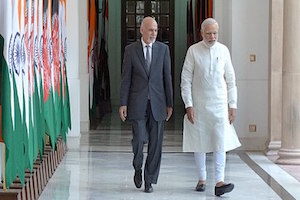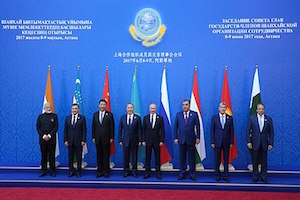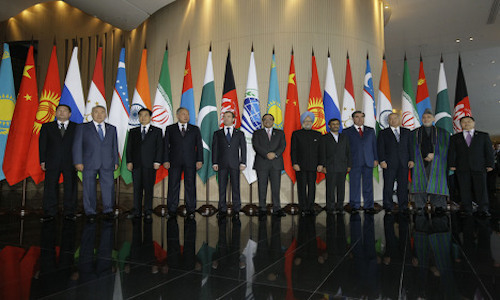Why Isolating Pakistan Will Not Solve Kabul's Problems
By Rizwan Zeb
August 7, 2017, the CACI Analyst
Afghanistan has been a factor in the rivalry between India and Pakistan since 1947. Prime Minister Narendra Modi has embarked upon a campaign to isolate Pakistan from developments in Afghanistan. The Sixth Heart of Asia summit, held in Amritsar, India in December 2016, was overshadowed by this increasing enmity. Afghanistan’s President Ashraf Ghani sided with Modi, accusing Islamabad of all ills in Afghanistan. New Delhi’s and Kabul’s approach at Amritsar must be avoided in the future. Kabul needs to put its house in order and should not become a party to Indo-Pakistan rivalry. New Delhi and Islamabad also need to understand that expanding this rivalry into Afghanistan will not serve their interests.

Has the SCO Solved its Expansion Dilemmas?
By Richard Weitz
August 3, 2017, the CACI Analyst
The June Shanghai Cooperation Organization (SCO) summit in Astana marked the SCO’s first membership expansion since its creation in 2001. By finally ending this logjam, the SCO has raised expectations of continued enlargement and increased geopolitical weight. However, major obstacles to further growth persist; meanwhile, more members deepen the mutual tensions and rivalries within the institution.

India’s and Pakistan’s Memberships Diminishes SCO’s Ability to Compete with NATO
By Naveed Ahmad
July 18, 2017, the CACI Analyst
The Shanghai Cooperation Organization (SCO) summit admitted India and Pakistan as full members on June 9; and now represents 40 percent of the human population and 20 percent of the global GDP. Russia and China have traditionally used the forum to promote a collective approach to countering NATO policies and advances. Though originally instituted to address separatism, terrorism and drug trafficking, the admission of India and Pakistan may drastically change the character of the grouping. China and Pakistan differ with India on key issues that the SCO aims to achieve. The trio has bitter geographical disputes while differing over the definition of terrorism. Against this backdrop, what kind of challenge can the SCO pose to NATO?

Pakistan to repatriate Afghan refugees
By Sudha Ramachandran
February 9, 2017, the CACI Analyst
Pakistan’s government has set March 31 as the deadline for all Afghan refugees living on its soil to leave the country or face deportation. Although it is not a signatory to the 1951 Refugee Convention or the 1967 Protocol, Pakistan has been a generous host to Afghan refugees, hosting up to 5 million Afghans at a time. Neither did Pakistan force them in the past to return to Afghanistan. This seems to have changed. For many refugees, returning to Afghanistan will not be a happy homecoming as the security and economic situation in the country remain dire.
The curious case of Chinese troops on Afghan soil
By Franz J. Marty
February 3, 2017, the CACI Analyst
Overwhelming evidence – photographs, an eyewitness account and several confirming statements of diplomats and observers, among them a Chinese official familiar with the matter – leaves virtually no doubt that Chinese troops have undertaken joint patrols with their Afghan (and possibly also Tajik) counterparts on Afghan soil in the Little Pamir, a high plateau near the Afghan-Chinese border. While the Chinese source insists that such joint border patrols were based on an agreement, and therefore legal, the Afghan government steadfastly denies the existence of such patrols.




